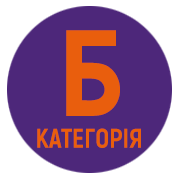SENSORY INTEGRATION OF CHILDREN WITH EARLY AUTISM
DOI:
https://doi.org/10.32782/2522-1795.2022.11.12Keywords:
sensory integration, autism, therapy of sensory disorders, sensory stimulation programAbstract
The article is devoted to the study of the peculiarities of the method of sensory integration in children with autism. The relevance of the topic is due to the fact that currently statistics of autism around the world indicate that these disorders and their prevalence are turning into a real disaster. Autism and autism spectrum disorders are one of the most common forms of disability and psychophysical development in children. The relevance of autism research as well as autism research is obvious, as the number of children with autism is growing steadily every year. Autism is a disorder that is affecting more than 1 % of the world’s population. It is a condition that includes problems with social behavior and communication skills, sensory perception, movement and fine motor skills, language and intellectual abilities. Early correctional work is crucial for a child’s development and habilitation. Areas of correctional work are classes with a psychologist, speech pathologist, speech therapist, correctional teacher, game therapist, art therapist, music therapist, exercise therapy doctor, masseur, ABA therapist and sensory integration. In the early stages of a child’s development, nervous system disorders may occur (hyper- or hyposensitivity, problems with coordination of movements and imbalance in the perception of body parts, etc.). Such disorders affect the perception of information coming from the outside through sight, hearing, smell, taste and touch. If a child has an imbalance or sensitivity to certain sensory stimuli, it will interfere with his learning and development, causing constant stress and anxiety. Therefore, it is necessary to balance the sensory experiences of the child and the feelings of his own body, so that he can calmly learn and develop without negative and painful feelings. Sensory integration therapy helps to balance the child’s sensitivity, support proper development and adapt to everyday tasks.
References
Адаптована клінічна настанова «Аутизм у дітей». 2015. С. 12–17.
Білан О. І. Заняття з сенсорного виховання дітей раннього віку. Львів : Проман, 2008. 48 с.
Велюш Д. Ю., Козій Т. П. Ефективність застосування сенсорної інтеграції при аутизмі.
Воробєй О., Бобир Р. Місце дитини-аутиста в сучасному Українському суспільстві. Етнічна історія народів Європи. 2012. Вип. 37. С. 79–82.
Григус І. М., Ковальчук Т. Л., Котяй Н. І., Михайлова Н. Є. Теоретичні та методологічні аспекти фізичної реабілітації дітей з особливими потребами : [посібник]. Рівне, 2012. 124 с.
Качмарик Х. В. Особливості організації психологічної корекції дітей з аутизмом у дошкільній установі. Науковий часопис НПУ імені М. П. Драгоманова. Сер. 19: Корекційна педагогіка та спеціальна психологія : зб. наук. праць. 2017. № 33. С. 145–150.
Колупаєва А. А. Інклюзивна освіта: вибір батьків. К. : Педагогічна думка. 2010. 70 с.
Косарєва Г. М. Характеристика діагностичного інструментарію для виявлення особливостей раннього розвитку дітей з розладами аутистичного спектру [Електронний ресурс]. Оновлення змісту, форм та методів навчання і виховання в закладах освіти : зб. наук. пр. Рівнен. держ. гуманітар. ун-т. Рівне, 2012. Вип. 5. С. 147–150.
Нагорна О. Б., Григус І. М. Розвиток моторики дітей раннього віку з синдромом розладу рухових функцій. Спортивна наука України, 2011. 2. С. 105–114.
Нестерчук Н., Бовгиря А., Григус І., Скальскі Д. Фізична реабілітація дітей з аутизмом=The rehabilitation children with autism. Medycyna і zdrowie. Wybrane aspekty ratownictwa. Redakcja naukowa. Tom 3. Gdynia-Gdańsk-Starogard Gdański. 2018. С. 34–44.
Нестерчук Н. Є., Малюк І. С., Григус І. М., Скальскі Д. Специфіка проведення фізичної реабілітації дітей з затримкою психічного розвитку=Specificity of physical rehabilitation of children with mental retardation. Bezpieczeństwo i zdrowie. Wybrane zagadnienia. Gdynia-Gdańsk-Starogard Gdański, 2018. С. 59–68.
Островська К. О. Засади комплексної психолого-педагогічної допомоги дітям з аутизмом: моногр. Львів : Тріада плюс, 2012. 520 с.
Островська К. О., Качмарик Х. В. Оцінка ефективності психологічного супроводу дітей з аутизмом. Науковий часопис НПУ ім. М. П. Драгоманова. Сер. 19: Корекційна педагогіка та спеціальна психологія : зб. наук. праць за ред. В. М. Синьова. К. : НПУ ім. М. П. Драгоманова, 2016. Вип. 31. C. 168–174.
Скрипник Т. Сенсорна інтеграція як підґрунтя цілісного розвитку дітей з аутизмом. Особлива дитина: навчання і виховання. 2016. № 4 (80). С. 24–31.
Скрипник Т. В. Феноменологія аутизму: моногр. Київ : Фенікс. 2010. С. 12–86.
Grygus I., Nagorna O., Nogas A., & Zukow W. (2019). Anthropological providing educational services to children with special educational needs. Journal of Human Sport and Exercise, 14 (4proc), pp. 852–866.
Kholodov S., Kashuba V., Khmelnitska I., Grygus I., Asauliuk I., Krupenya S. (2021). Model biomechanical characteristics of child’s walking during primary school age. Journal of Physical Education and Sport, Vol. 21 (Suppl. issue 5), pp. 2857–2863.
Sydoruk I., Grygus I., Podolianchuk I., Ostrowska M., Napierala M., Hagner-Derengowska M., Kaluzny K., Muszkieta R., Zukow W., Smolenska O., Skalski D. (2021). Adaptive physical education for children with the Down syndrome. Journal of Physical Education and Sport, Vol. 21 (Suppl. issue 5), pp. 2790–2795.
Downloads
Published
How to Cite
Issue
Section
License

This work is licensed under a Creative Commons Attribution-NonCommercial-NoDerivatives 4.0 International License.











